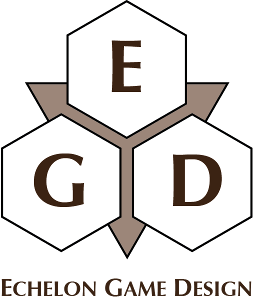Ray Case at google+ had some questions about keystone talents.
+Keith J Davies has thrown me for a loop with his echelonD20 ruleset – his keystone idea won’t get out of my head! I am struggling with what makes a cornerstone versus what makes a capstone. Even while I am at work!
If ‘Crafter’ is a cornerstone, is ‘of Wands’ a capstone? How about ‘of Bows?’ Is Crafter even a cornerstone??
Warrior is an obvious cornerstone, but it sounds a lot like a class – i can feel the abstraction you have created, but I am struggling with a good reference point for what is a cornerstone.
I really like the idea btw.
I’m happy to hear you like it.
To summarize the differences between the talent types, consider the following guidelines.
- Cornerstones are fundamental blocks, things that you are. You are a dwarf, you are a demon, you are a warrior. They tend to be relatively heavy (about 2-3 times the effect on your character as normal talents, and may include detrimental things like a vulnerability to holy water).
- Normal talents are what you learn. You learn to sword fight, you learn to take a beating (yes, this is trainable in real life), you learn to cast fire magic, you learn to change shape.
- Capstones are what you become. You become a knight, you become a fire mage, you become a succubus (demon with some shape change and seduction powers, most likely).
I don’t know that ‘Crafter’ would be a cornerstone (did I describe it as one? If I did I maybe should change that). It is unfortunate that some of the cornerstones I have mentioned link almost directly to classes in D&D… but in this case a Warrior is someone who is instinctively effective in a fight — faster reaction to threats, better at spotting weaknesses, tougher than usual, that sort of thing. These same abilities may be trained (costing a normal talent for each), to a similar degree… but that training also works for those it comes naturally to.
Crafter… I don’t see a cornerstone for that one, unless we can come up with something worth multiple normal talents. Instead, the ‘dwarves are natural crafters’ trope could mean that all dwarves are good at some kind of craft.
Master Smith, on the other hand, could be a capstone. Obviously you need Craft, and possibly one other talent (not sure what), but where improving your tier with Craft lets you build progressively better items (starting with masterwork at the Basic tier), Master Smith gives you abilities appropriate to someone who has trained to become the best of his tier.
I am reminded of a character from the Inu Yasha anime who was one of the greatest (and supernatural) crafters… he had a fiery breath that he used when forging weapons.
There are some combinations that go together pretty naturally. ‘Wizard’ and ‘Fire Mage’ (learn particular spells and abilities) is an obvious one, ‘Warrior’ and ‘Knight’ (specific combat style, mounted combat, chivalry) is another, and so on. It is possible for there to be mismatches (Devil cornerstone, Knight capstone might be an interesting one), and cornerstones and capstones with no natural pairing (Master Smith might be one… but dwarves might be a little better with their ‘Natural Crafter’ (sub)talent).
Elf would probably be a cornerstone (there are several related abilities to be bundled together), but just to confuse things there could be related capstone. ‘Drow’ probably requires that you be an elf (direct relationship between cornerstone and capstone) that follows Lolth (Godsworn talent). This incidentally helps cover off the Level Adjustment from some editions of D&D — you can be an elf at almost any level, but a Drow will be at least fourth (basic capstone level). If you get them young, perhaps you can get them off the path to darkness….
You don’t have to keep them in step, even. If you want, you could be an 11th level character with Expert Elf cornerstone (took it at 9th level) but only Basic Drow capstone (took it at 4th). This might explain certain dark elves who overcome their early upbringing, though it suggests that the Godsworn talent required to become a drow might not be the best choice.
I hope this helps.

Pingback: Links of the Week: April 30, 2012 | Keith Davies — In My Campaign - Keith's thoughts on RPG design and play.